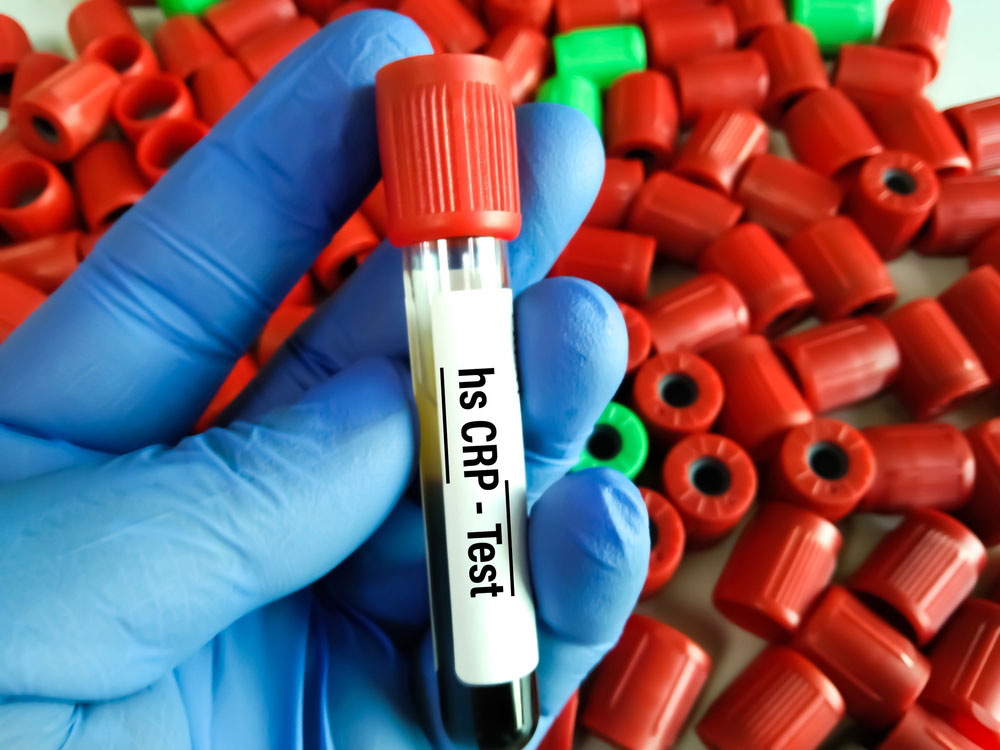What is the hs-CRP Test? Know its Symptoms
The hs-CRP test stands for high-sensitivity C-reactive protein test. It is a blood test that is done to check the levels of C-reactive protein in your blood. The levels of the C-reactive protein (CRP) can increase if there is some inflammation present in your body. A coronary artery disease must be diagnosed as soon as possible by a medical checkup as it can even lead to a heart attack.
What is the purpose of a C-reactive protein (CRP) test?
C-reactive protein is a particular element created in the liver in reaction to any inflammation present in the body. An elevated level of the C-reactive protein also shows the indications of inflammation, infection of particular kinds of cancer, or heart arteries. Even though particular blood tests help map the levels of C-reactive protein in the body, the hs-CRP is a very specific test, and therefore, these days, it is among one of the major tests recommended by doctors to check C-reactive proteins during a medical checkup.
What does a CRP level of 7.5 mean in a blood test?
Heart diseases have an inflammatory element that can be linked to elevated levels of C-reactive protein. Nonetheless, based on the current data available, it simply cannot be deemed as an independent risk when it comes to cardiovascular disease.
Based on the recent studies conducted by the American Heart Association (AHA) and the CDC, here are the recommended guidelines to help you assess the risk of cardiovascular disease:
- Low risks for cardiovascular diseases are indicated by 1 mg per liter or even lower CRP levels.
- Moderate risks for cardiovascular diseases are indicated by 1-3 mg per liter CRP levels.
- High risks for cardiovascular diseases are indicated by a level higher than 3 mg per liter CRP levels.
- Acute risks for a coronary process such as acute myocardial infarction or a heart attack are indicated by a level higher than 10 mg per liter CRP levels.
What are the symptoms of high C reactive protein?
The symptoms of elevated CRP levels are based completely on the condition underlying that is driving them.
Most people who have a moderate injury or an infection, or an underlying condition that causes chronic inflammation, might experience identical symptoms.
These symptoms include:
- unexplained pain
- unexplained exhaustion
- weakness, soreness, or muscle stiffness
- chills
- fever of a low grade
- headache
- indigestion, loss of appetite, or nausea
- unexplained weight loss
- insomnia or difficulty sleeping
People who have a very high level of CRP most probably have a critical bacterial infection.
Some typical signs of an acute infection include:
- rapid heart rate
- high fever
- shaking, chills, uncontrollable sweating
- diarrhea, retching, persistent or uncontrollable vomiting
- difficulty breathing
- hives or rash
- parched skin, mouth, and lips
- lightheadedness or dizziness
- soreness, stiffness, body pain, a severe headache
- loss of consciousness
Why people should opt for regular health checkups?
Adults and probably elderly people with comorbidities such as chronic obstructive pulmonary disease (COPD), kidney disease, heart problems, hypertension, and diabetes are at more risk of suffering from COVID-19 due to low immunity. People need to take good care, get regular health checkups, stay healthy, and reduce mortality and morbidity rates.
Conclusion
The hs-CRP blood test is much more sensitive as compared to a standard CRP test. The increased sensitivity means that the hs-CRP test can detect a slight increase as well within the standard range of normal CRP levels. This blood test could be used to check your risk of acquiring coronary artery disease which is a condition in which your arteries get narrowed.
Meet Our MD, Dr. Charandeep Singh Sahni
We take pride in the fact that we are led and driven by the innovative and humanitarian approach of our honourable managing director, Dr Charandeep Singh Sahni. Carrying several years of experience in medical services under his belt, Dr Sahni has been actively involved in organizing and conducting national and state-level conferences at TMH. He specializes in lymph node pathology, GI pathology, head and neck pathology, and breast pathology.
Medical Academic Background and Career at a Glance
- MBBS from the prestigious Grant Medical College and Sir JJ Hospital, Mumbai with distinction in Biochemistry and Pharmacology in 2000.
- MD in pathology from Tata Memorial Hospital, Mumbai from 2003-06.
- Worked as Senior Resident in Department of Histopathology at PGIMER, Chandigarh.
Research and Papers Presented by Dr Sahni
Dr Sahni also demonstrated his professional achievements by presenting his research works at several eminent conferences. Some of his research work was published and referred by eminent medical journals.
- He presented a poster on “Aorto-Left Atrial Fistula” in APCON 2003 at Bhubaneswar.
- His paper on “Analysis of Renal Cell Carcinoma: A Study of 173 cases” in APCON 2005 at Pune was lauded by the healthcare community.
- In 2006, he demonstrated an important piece of research titled “Distribution, clinicopathological characteristics and immunophenotyping of Hodgkin’s Lymphoma: A study of 313 cases using WHO classification (2000)” at APCON 2006 in Bangalore.
Key Published Works:
Dr Sahni has also been involved with many articles published by leading science and medical journals.
- Bothra R, Pai PS, Chaturvedi P, Majeed TA, Singh C, Gujral S, Kane SV. Follicular dendritic cell tumour of tonsil – is it an underdiagnosed entity? Indian J Cancer 2005; 42 (4): 211-4.
- Charandeep S Sahni, Sangeeta B. Desai. Distribution and Clinicopathological characteristics of non- Hodgkin’s lymphoma in India: A study of 935 cases using the WHO classification of lymphoid neoplasms (2000). Leukaemia and Lymphoma 2007; 48 (1): 122-133.
- Charandeep Sahni, Sangeeta Desai. Primary testicular precursor B-lymphoblastic lymphoma: A rare entity. Leukaemia and Lymphoma 2007

